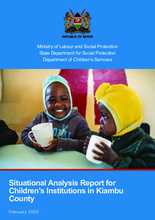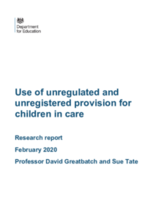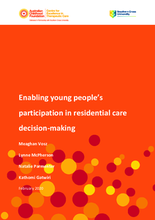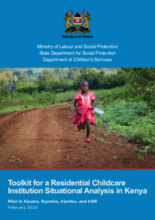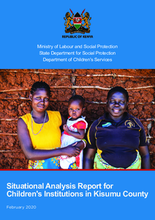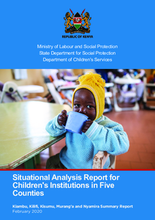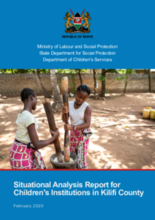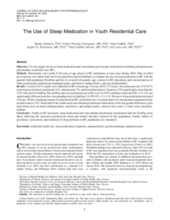Displaying 321 - 330 of 1510
Focusing on the life histories of children and young people living in residential care, this study explores the circumstances of their entry into residential care and their interpretations of these experiences.
The purpose of the situational analysis is to provide a snapshot of Charitable Children’s Institutions (CCIs), other private childcare institutions and Statutory Children’s Institutions (SCIs), and the children living in them in Kiambu County, Kenya.
The UK Department for Education commissioned the research on which this report is based to gain a better overall understanding of the issues around the use of unregulated and unregistered provision for looked after children (LAC) and care leavers.
This brief addresses issues in young people’s participation in decision-making in residential care in Australia.
This toolkit is developed for use by the Department of Children’s Services (DCS) and its partners engaged in care reform in Kenya. The tools herein are designed for a rapid situational analysis of children’s care institutions/statutory care institutions (CCI/SCIs) and the children living in them, and as a complement to any information already existing in the child protection information management system (CPIMS) or other government endorsed data.
The purpose of the situational analysis is to provide a snapshot of Charitable Children’s Institutions (CCIs), other private childcare institutions and Statutory Children’s Institutions (SCIs), and the children living in them in Kisumu County, Kenya.
The purpose of this situational analysis is to provide a snapshot of charitable children’s institutions (CCIs), other private childcare institutions and statutory children’s institutions (SCIs) in Kenya, and of the children living in them.
The purpose of the situational analysis is to provide a snapshot of Charitable Children’s Institutions (CCIs), other private childcare institutions and Statutory Children’s Institutions (SCIs) and the children living in them in Kilifi County, Kenya.
This qualitative study explored the accounts of 50 residential childcare staff in Saudi Arabia, aiming to identify ways in which staff and residential institutions may function as attachment objects for the children in their care.
The purpose of this study was to investigate the use of sleep medication and concomitant psychotropic medication in children and adolescents placed under residential care (RC) in Norway.

